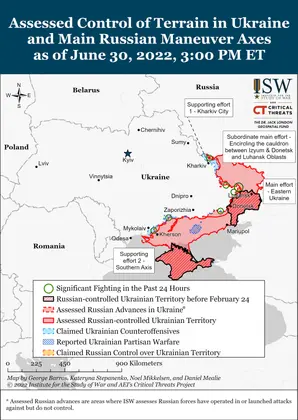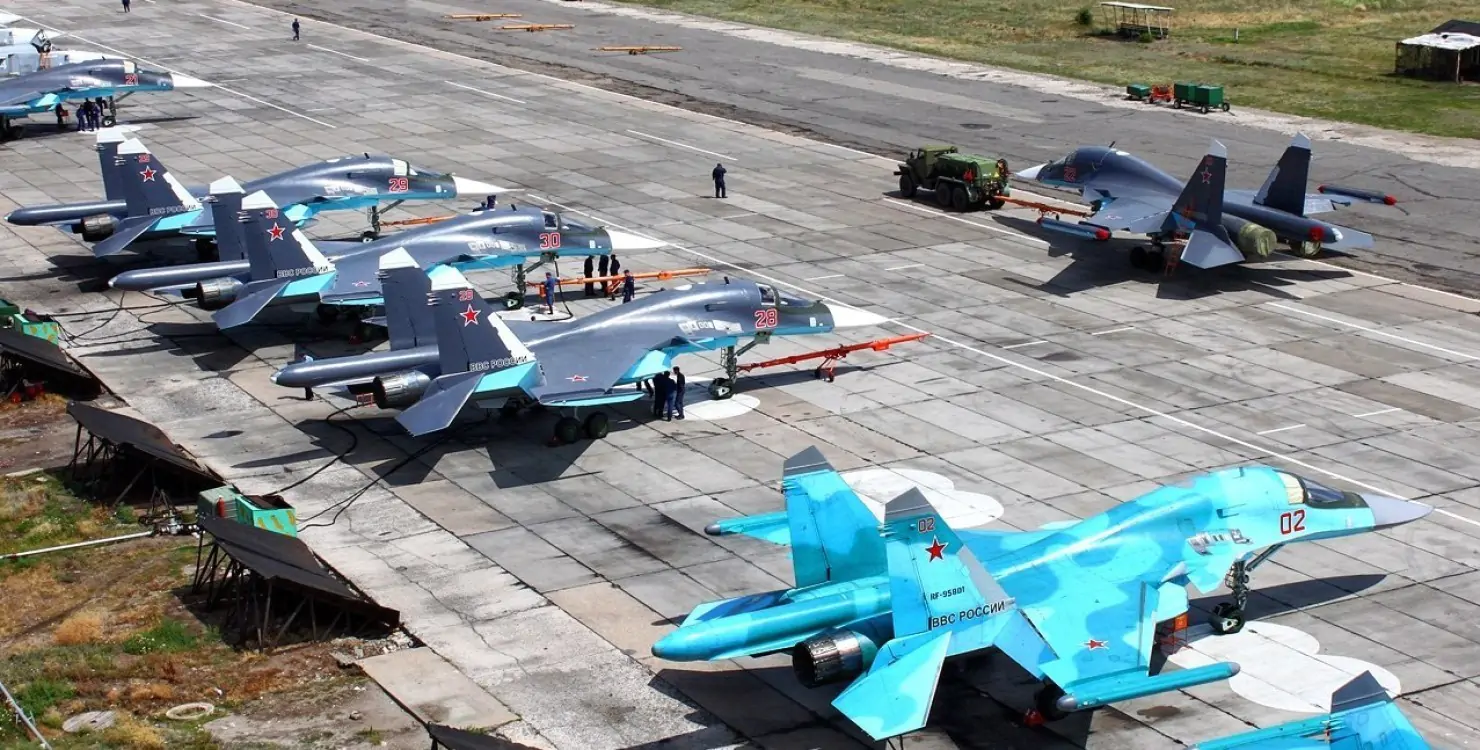Key Takeaways
- Russian troops made limited gains within the Lysychansk Oil Refinery and around Lysychansk.
- Russian forces continued offensive operations to the south and east of Bakhmut and to the north of Slovyansk.
- Russian forces continued efforts to regain control of settlements north of Kharkiv City.
- Ukrainian counteroffensives continue to force Russian troops on the Southern Axis to prioritize defensive operations.
- Russian occupation authorities took measures to ensure further economic and financial integration of occupied areas into the Russian system.
Karolina Hird, Kateryna Stepanenko, Frederick W. Kagan, and Grace Mappes
JOIN US ON TELEGRAM
Follow our coverage of the war on the @Kyivpost_official.
Click here to see ISW’s interactive map of the Russian invasion of Ukraine. This map is updated daily alongside the static maps present in this report.
Russian forces retreated from the Snake Island on June 30 following a Ukrainian missile and artillery campaign. The Russian Defense Ministry spun the retreat as “a step of goodwill.”[1] The Russian Defense Ministry claimed that the Kremlin does not interfere with United Nations (UN) efforts to organize a humanitarian corridor for agricultural export from Ukraine but did not acknowledge the Ukrainian artillery and missile campaign that had actually caused the retreat. The Ukrainian Southern Operational Command had announced elements of that campaign on June 21.[2] The Russian Defense Ministry has claimed that Russian forces defeated all Ukrainian drone and missile attacks leading up to their retreat despite considerable evidence to the contrary.[3] The Russian defeat on the Snake Island will alleviate some pressure off the Ukrainian coast by removing Russian air defense and anti-ship missile systems from the island. The retreat itself will not end the sea blockade, however, as Russian forces have access to land-based anti-ship systems in Crimea and western Kherson Oblast that can still target Ukrainian cargo as well as the use of the remaining ships of the Black Sea Fleet.

How Poland’s Trade with Russia Undermines EU Sanctions and Support for Ukraine
Russian milbloggers overwhelmingly defended the Russian decision to withdraw troops and equipment from the island, claiming that Russian forces are prioritizing the “liberation of Donbas.”[4] Some said that Russian forces do not have enough capacity to destroy Ukrainian coastal troops and others claimed that Russian forces will be more successful striking Ukrainians when they attempt to deploy their own troops to the island. Milbloggers have previously criticized the Russian military command for failing to retreat to save equipment and manpower and are likely content with the Russian retreat from the Snake Island.[5] Milbloggers, following the Kremlin line, did not acknowledge the role Ukrainian strikes against the island played in compelling Russian forces to retreat.
Russian authorities continue to galvanize the support of proxy actors in order to support force generation efforts. Chechen leader Ramzan Kadyrov announced on June 29 that another Akhmat special battalion, the Vostok (east)-Akhmat battalion, has been successfully formed and will shortly move to its point of permanent deployment and begin active service.[6] As ISW reported on June 28, Kadyrov stated he intends to form four new Akhmat special operations battalions and announced the formation of the Zapad (west)-Akhmat battalion early this week.[7]
You can also highlight the text and press Ctrl + Enter






